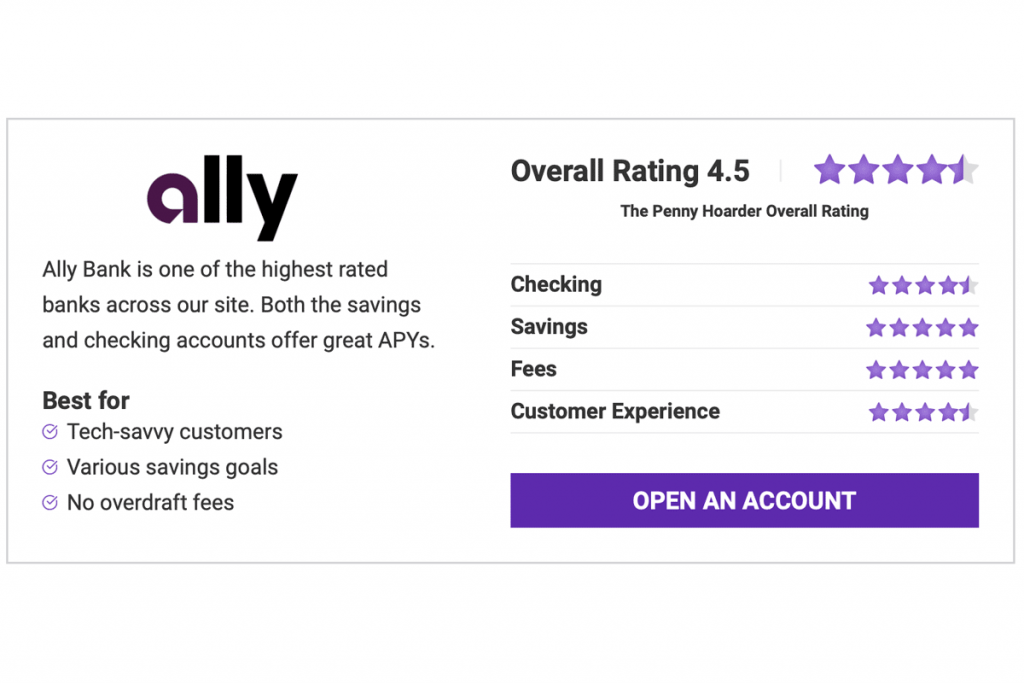Here’s a good question for the new year: Is 2022 a good time to invest in stocks?
In turbulent times like these, it’s hard to know the right financial moves to make. A lot of the tried-and-true advice we’ve always relied on doesn’t seem relevant anymore. Is now a good time to invest? Should I focus on paying off debt? Or saving?
It’s helpful to consult with a pro. So we asked Robin Hartill, a certified financial planner, as well as an editor and financial advice columnist for The Penny Hoarder, for advice.
Here are six financial questions we’ve been getting from readers lately:
1. ‘The Cost of Waiting is High’
Question: “Is 2022 a good time to invest, or should I wait the market out?”
Hartill’s advice: Take the long view. The stock market will grow your money over time, so you might as well get started sooner rather than later.
“The timing of your investment matters much less than how much time you have to invest,” Hartill says. “The S&P 500 has delivered inflation-adjusted returns of about 7% per year on average for the past 50 years. The cost of waiting for the perfect time to invest is high. You’re missing out on long-term growth.”
Profitable investing is all about taking the long view. Not sure how to get started? With an app called Stash, you can get started with as little as $1.* It lets you choose from hundreds of stocks and funds to build your own investment portfolio. It makes it simple by breaking them down into categories based on your personal goals.
“If you were hoping to make a quick buck off the stock market, now may not be a great time,” Hartill said. “We’re still in a recession, but the stock market has recovered. But true investing isn’t about making a quick buck. It’s about growing your money over time.”
She recommends budgeting a certain amount of money to invest each month, no matter what.
If you sign up for Stash now (it takes two minutes), Stash will give you $5 after you add $5 to your investment account. Subscription plans start at $1 a month.**
2. ‘There’s Only So Much Fat You Can Cut’
Question: “My monthly expenses keep going up. Anything I can do?”
“There’s only so much fat you can cut from your budget. Eventually, you start chipping away at muscle and bone,” Hartill said. “Cutting costs is often a good way to meet your shorter-term goals, like saving for a vacation or a down payment. But for the really big long-term goals like retirement and protecting your family from a worst-case scenario, cutting back only goes so far.”
If you need to cut back, though, take a hard look at your mandatory monthly bills — like car insurance. When’s the last time you checked prices? You should shop around your options every six months or so.
And if you look through a website called EverQuote, you can see all your options at once.
EverQuote is the largest online marketplace for insurance in the US, so you’ll get the top options from more than 175 different carriers handed right to you.
Take a couple of minutes to answer some questions about yourself and your driving record. With this information, EverQuote will be able to give you the top recommendations for car insurance. In just a few minutes, you could save up to $610 a year.
3. ‘If You Have Your Spending in Check… ’
Question: “My budget is tight. What debt should I focus on paying off?”
“The only way to get out of debt is by spending less than you earn,” Hartill said. “But if you have your spending in check, a debt-consolidation loan can help you shed your debt faster.”
She added a caveat: “This option only makes sense if it lowers your interest payments. Many people who don’t have good credit actually find that the interest rate they’re approved for is even higher than what they’re currently paying.”
It takes just a few minutes to see if that could work for you. A website called Fiona can match you with a low-interest loan. If your credit score is at least 620, Fiona can help you borrow up to $250,000 (no collateral needed) with fixed rates starting at 2.49% and terms from 6 to 144 months.
Fiona won’t make you stand in line or call a bank. And if you’re worried you won’t qualify, it’s free to check online. It takes just two minutes, and it could save you thousands of dollars. Totally worth it.
4. ‘You Don’t Have to Settle for Nothing’
Question: “My savings account bottomed out. Any other ways to make passive income right now?”
“Although interest rates will stay low until at least 2023, that doesn’t mean you have to settle for earning nothing on your savings,” Hartill said.
Most banks are paying account holders virtually no interest on their savings these days. By signing up for a debit card called Aspiration, you could get up to 5% back when you swipe at certain stores, plus they give you up to 83 times the normal national interest rate on your savings balance.
To see how much you could earn, enter your email address here, link your bank account and add at least $10 to your account. And don’t worry. Your money is FDIC insured and under a military-grade encryption. That’s nerd talk for “this is totally safe.”
5. ‘Most of Us Don’t Earn Enough’
Question: “How can I possibly earn enough to ever retire?”
Hartill shared a brutal truth with us: “The overwhelming majority of us don’t earn enough to get to save our way to retirement.”
Ouch, that hurts. But wait, she offers a solution: “Spending money by investing it in the stock market and earning returns that compound into even more money.”
“If you need a $500,000 nest egg to retire, you’d have to trim $10,000 from your budget for 50 years straight to get there through savings alone. But if you invested just $5,000 a year and earned 6% returns, you’d get there in less than 34 years.”
6. ‘The Only Practical Way to Give Your Family Security’
Question: “I have a family. How can I make sure they’re protected in these uncertain times?”
“Spending money on life insurance is the only practical way to give your family the security they deserve,” Hartill said. “Your life insurance needs are greatest when you have young children. Fortunately, this is often a time when you’re still young enough that life insurance is relatively inexpensive.”
Maybe you’re thinking: I don’t have the time or money for that. But this takes minutes — and you could leave your family up to $1 million with a company called Bestow.
We hear people are paying as little as $8 a month. (But every year you wait, this gets more expensive.)
It takes just minutes to get a free quote and see how much life insurance you can leave your loved ones — even if you don’t have seven figures in your bank account.
Mike Brassfield ([email protected]) is a senior writer at The Penny Hoarder. He is not a certified financial planner, but he has stayed in a Holiday Inn Express.
*For Securities priced over $1,000, purchase of fractional shares starts at $0.05.
**You’ll also bear the standard fees and expenses reflected in the pricing of the ETFs in your account, plus fees for various ancillary services charged by Stash and the custodian.
Credit: Source link














